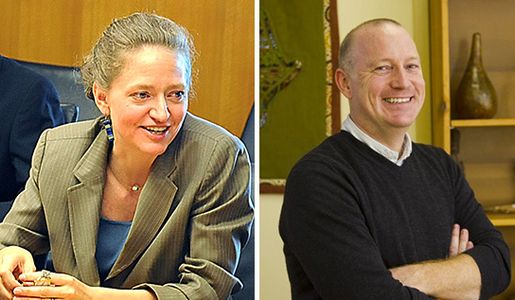Longman Briefs US Ambassador to Rwanda
 Timothy Longman, associate professor of Political Science at the Frederick S. Pardee School of Global Studies at Boston University, recently traveled to Washington to brief the newly confirmed ambassador to Rwanda, Erica Barks Ruggles.
Timothy Longman, associate professor of Political Science at the Frederick S. Pardee School of Global Studies at Boston University, recently traveled to Washington to brief the newly confirmed ambassador to Rwanda, Erica Barks Ruggles.
Longman, who is also the director of the African Studies Center, was one of three speakers in a briefing for the new ambassador and other US government officials being held at the State Department, called “Executive Analytic Exchange on Rwanda.”
“These events are an important opportunity for scholars to exchange ideas with the diplomatic community and have a direct impact on foreign policy. The meeting on Rwanda included over fifty government workers from the Departments of State, Defense, and Justice, the Pentagon, and other agencies,” said Longman. “It is an honor to be able to share ideas and information with the key actors involved in the United States’ overseas engagement.”
Before being named ambassador to Rwanda, Barks Ruggles was a career member of the Senior Foreign Service and had served as Consul General at the U.S. Consulate in Cape Town, South Africa since 2011. Prior to her Cape Town assignment, Barks Ruggles served as Deputy to the U.S. Ambassador to the United Nations. She earned a Bachelor’s Degree with Honors from Swarthmore College in 1989 and is the recipient of five Superior Honor Awards and five Meritorious Honor Awards from the Department of State.
Professor Longman’s current research focuses on state -society relations in Africa, looking particularly at human rights, transitional justice, democratization, civil society, the politics of race and ethnicity, religion and politics, and women and politics. His new book,”Commanded by the Devil”: Christianity and Genocide in Rwanda will be published by Cambridge University Press, and is based on his field research in Rwanda in 1992-1993, and 1995-1996. It argues that Rwanda’s churches became implicated in the 1994 Rwandan genocide because of their historic links with the state, their active engagement in ethnic politics, and the ongoing cooperative ties between leaders of the churches and the state.